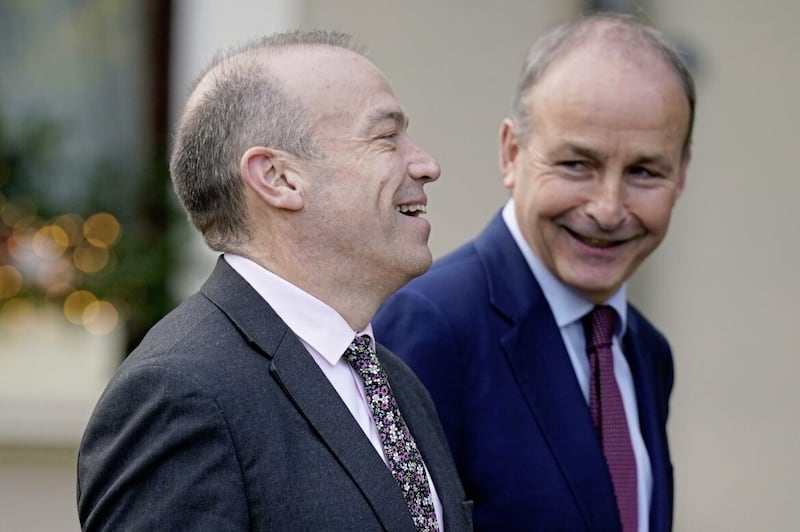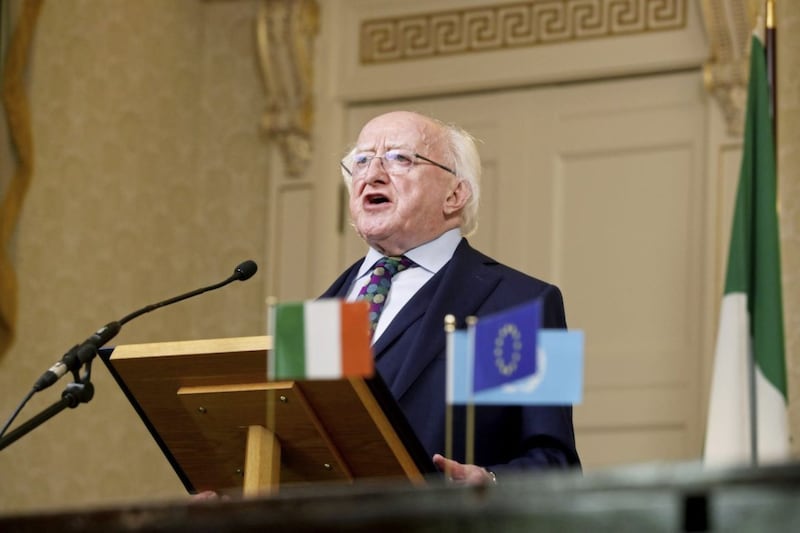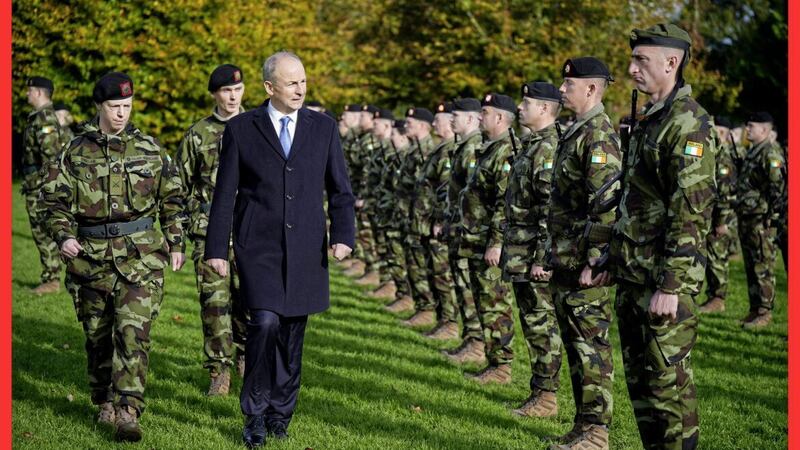MICHEÁL Martin’s Shared Island Initiative has taken a new twist. Up to now he has provided southern funding for northern initiatives, as part of the Dublin government’s domestic policy.
Now, however, he has decided to extend that co-operation to Irish foreign policy – not by aligning the north with the south, but by aligning the south with Britain. He intends to do this by changing the rules which determine when Irish troops can be sent abroad.
Overseas deployment of Irish soldiers currently requires a three-stage approval from the United Nations (UN), the Irish government and the Dáil, in a process regarded as the basis for Irish neutrality.
Mr Martin intends to remove the requirement of UN approval. So in a Nato-led war, for example, Ireland can fight alongside Britain in what has become Dublin’s shared islands policy.
Welcome to the last days of neutral Ireland.
Read more:
- Patrick Murphy: President Michael D Higgins is right – we can't be neutral about Irish neutrality
- Joe Biden came to Ireland to tell us he supported peace. So why is he sending cluster bombs to Ukraine?
- Security forum chair says neutrality ‘not necessary' for Ireland's reputation
The reason offered for abandoning neutrality is that Russia can veto any UN decision and can therefore prevent the deployment of Irish troops. This is true, but the US, China, Britain and France also have a veto and Mr Martin did not mention them. So he is using anti-Russian sentiment to sell his plan, while supporting Britain, the US and the EU.
So we are back to 1914 when unionists and nationalists fought alongside each other, one lot believing they were fighting for Irish Home Rule, the others believing they were fighting for the union. Soon we can observe the sons of Ireland again marching side by side towards a modern-day Somme: nationalists fighting for Irish unity through EU membership and unionists fighting for Britain to preserve partition.
Ireland will be united only in war. That’s Ireland’s future.

This foreign policy reversal follows Mr Martin’s Consultative Forum on International Security, held earlier this year. It was not a citizens’ assembly, just a hand-picked assortment of what President Higgins called “the admirals, the generals, the air force, the rest of it”, along with “the formerly neutral countries who are now joining Nato”.
Those supporting Irish neutrality were largely excluded. This contrasts with Mr Martin’s assertion in his book Freedom to Choose (2009) in which he wrote that “the people of Ireland can choose their destiny by democratic means”. There was no democracy in the forum.
There is even less democracy in the abandonment of the triple lock, because in 2001 the Irish people rejected the EU’s Nice Treaty. In expressing Sinn Féin’s opposition to the treaty, Gerry Adams said it would create an EU superstate with its own army. It would undermine our sovereignty, bring us closer to Nato and relegate us to the second division of a two-tier European Union. He was right.
Read more:
- Jeremy Corbyn urges Republic not to forsake neutrality
- Tanaiste asks officials to legislate for major change to defence triple lock
- Tanaiste says Government has ‘no secret plan' to join Nato
But, as they say, chuaigh sin agus tháinig seo (that went and this came). Now SF are the EU’s most ardent supporters. The price of populism is the abandonment of principle.
The following year, on prompting from the EU, the Irish government held the referendum again (it’s called EU democracy) on the basis that it would adhere to the triple lock.
In what was known as the Seville Declaration, the other EU states accepted this. The Fianna Fáil government won the second referendum by pledging to retain Irish neutrality. Micheál Martin was Minister for Health and Children in that government. Now he is planning to break his party’s pledge.

In the 2009 referendum on the EU’s Lisbon Treaty, the government’s referendum booklet declared that the Triple Lock “will be associated with the instrument of ratification if Ireland does ratify the Lisbon Treaty”. Another worthless promise.
So Dublin’s Shared Island Initiative is to share our island’s young lives with the military powers of the US, the EU and Britain and do our share of dying in the interests of the wealthy and the greedy.
As our young march off to the cheers of politicians, will they know that Ireland’s road to war has been paved with broken promises? Who will tell them?








